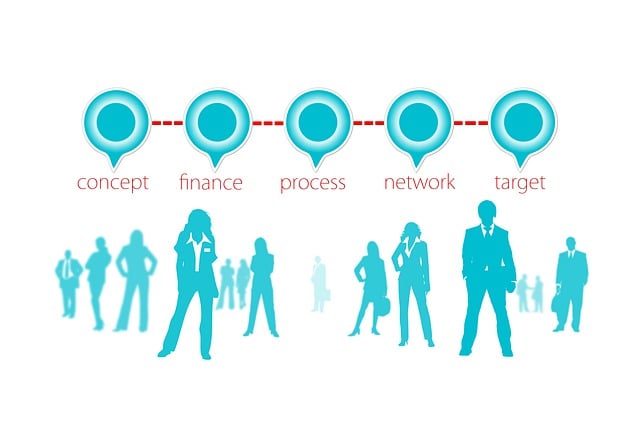In today's digital age, UK Academic Journals Translation Services are essential for breaking language barriers and expanding global knowledge. These services facilitate communication between international researchers, accelerating scientific progress through idea exchange and enriching academic discourse worldwide. By providing content in multiple languages and accessible formats, they ensure a broader reach and inclusivity for both disabled readers and non-native speakers. Strategies like implementing these translation services, along with technology integration and open-access policies, contribute to a vibrant global academic environment.
In today’s global academic landscape, ensuring accessibility in research is paramount. This article explores strategies to enhance accessibility in UK academic journals, with a focus on translation services as a key enabler. We delve into the need for inclusive practices, examining how these initiatives expand knowledge reach and foster diverse contributions. Through a comprehensive look at current approaches, best practices, and future directions, we highlight the transformative power of improved accessibility in academic publishing.
- Understanding the Need for Accessibility in Academic Content
- The Role of Translation Services in UK Academic Journals
- Strategies to Improve Accessibility for Global Readers
- Benefits of Enhanced Accessibility: Expanding Knowledge Reach
- Best Practices and Future Directions for Inclusive Academic Publishing
Understanding the Need for Accessibility in Academic Content

In today’s digital age, ensuring accessibility in academic content is more crucial than ever. With a vast majority of research and scholarly communication happening online, UK Academic Journals Translation Services play a pivotal role in breaking down language barriers and expanding knowledge accessibility worldwide. The need for accessibility arises from several factors: the global nature of academia, where researchers and students come from diverse linguistic backgrounds; the increasing use of digital platforms for content distribution; and the commitment to inclusivity and equal opportunities in education.
Accessibility ensures that academic knowledge is not confined to specific regions or language groups. It enables scholars from different parts of the world to contribute to and benefit from each other’s research, fostering a global exchange of ideas and accelerating scientific progress. UK Academic Journals Translation Services facilitate this by providing high-quality translations that preserve the integrity and accuracy of original content, making it accessible to a broader audience. This, in turn, enriches academic discourse and supports the development of a more diverse and inclusive academic community.
The Role of Translation Services in UK Academic Journals

In today’s global academic landscape, ensuring accessibility is paramount, and translation services play a pivotal role in this regard for UK Academic Journals. With a diverse range of researchers and readers from around the world, providing content in multiple languages has become essential to fostering inclusivity and knowledge exchange. Translation enables scholars from non-English speaking backgrounds to access cutting-edge research, contributing to a more comprehensive academic community.
UK Academic Journals can significantly broaden their reach and impact by employing professional translation services. These services not only translate articles but also ensure the accuracy and fluency of scientific content, preserving its original meaning and quality. This is crucial for maintaining high standards in academia while making research accessible to a broader international audience.
Strategies to Improve Accessibility for Global Readers

To enhance accessibility for global readers, academic institutions and publishers in the UK should consider implementing several strategies. One key approach is to offer comprehensive UK Academic Journals Translation Services. By translating articles into multiple languages, these services ensure that research is accessible not just to native English speakers but also to a diverse range of international audiences. This not only expands the reach of academic content but also fosters global collaboration and knowledge exchange.
Additionally, incorporating accessible formats such as text-to-speech technologies, braille options, and sign language translations can greatly benefit readers with disabilities. Digital platforms that support these features make it easier for students and researchers worldwide to engage with academic content. Furthermore, providing detailed abstracts and summaries in various languages helps non-native speakers quickly grasp the essence of research papers, encouraging them to delve deeper into relevant topics.
Benefits of Enhanced Accessibility: Expanding Knowledge Reach

Enhancing accessibility to academic content opens up a world of knowledge, ensuring that learning and research are no longer confined to specific demographics or geographical locations. By providing translations for UK academic journals, for instance, we enable researchers worldwide to access cutting-edge research and diverse perspectives. This democratization of knowledge breaks down language barriers, fostering a global exchange of ideas and contributing to the collective advancement of science, technology, and culture.
Moreover, improved accessibility promotes inclusivity, allowing individuals with disabilities or those for whom English is not their first language to fully engage with academic literature. Advanced translation services play a pivotal role in this process by offering precise and culturally sensitive interpretations, ensuring that the meaning and nuances of complex scholarly works are preserved. Thus, enhanced accessibility enriches both individual learning journeys and societal progress as a whole.
Best Practices and Future Directions for Inclusive Academic Publishing

In the pursuit of enhancing accessibility, inclusive academic publishing demands a multifaceted approach. One of the best practices involves leveraging UK Academic Journals Translation Services to overcome language barriers, ensuring that content is accessible to a global audience. High-quality translations not only expand readership but also foster diversity and inclusivity within academic communities. Additionally, providing alternative formats such as audio and e-text versions can accommodate different learning styles and disabilities.
Looking ahead, the future of inclusive academic publishing lies in technology integration. Artificial intelligence and machine learning can play a pivotal role in automated content structuring, accessibility tagging, and even personalized learning experiences. Moreover, open-access policies should be encouraged to remove financial barriers, ensuring that valuable research remains accessible without restrictions. Such practices will not only democratize education but also enrich academic discourse globally.
In conclusion, enhancing accessibility in academic content is no longer a choice but an imperative, especially with global readers increasingly contributing to and consuming research from UK academic journals. The integration of translation services has played a pivotal role in breaking down language barriers, while strategic improvements continue to expand knowledge reach. As we move forward, adopting best practices and exploring future directions in inclusive academic publishing will ensure that groundbreaking research is accessible to all, fostering a more diverse and global scholarly community.
